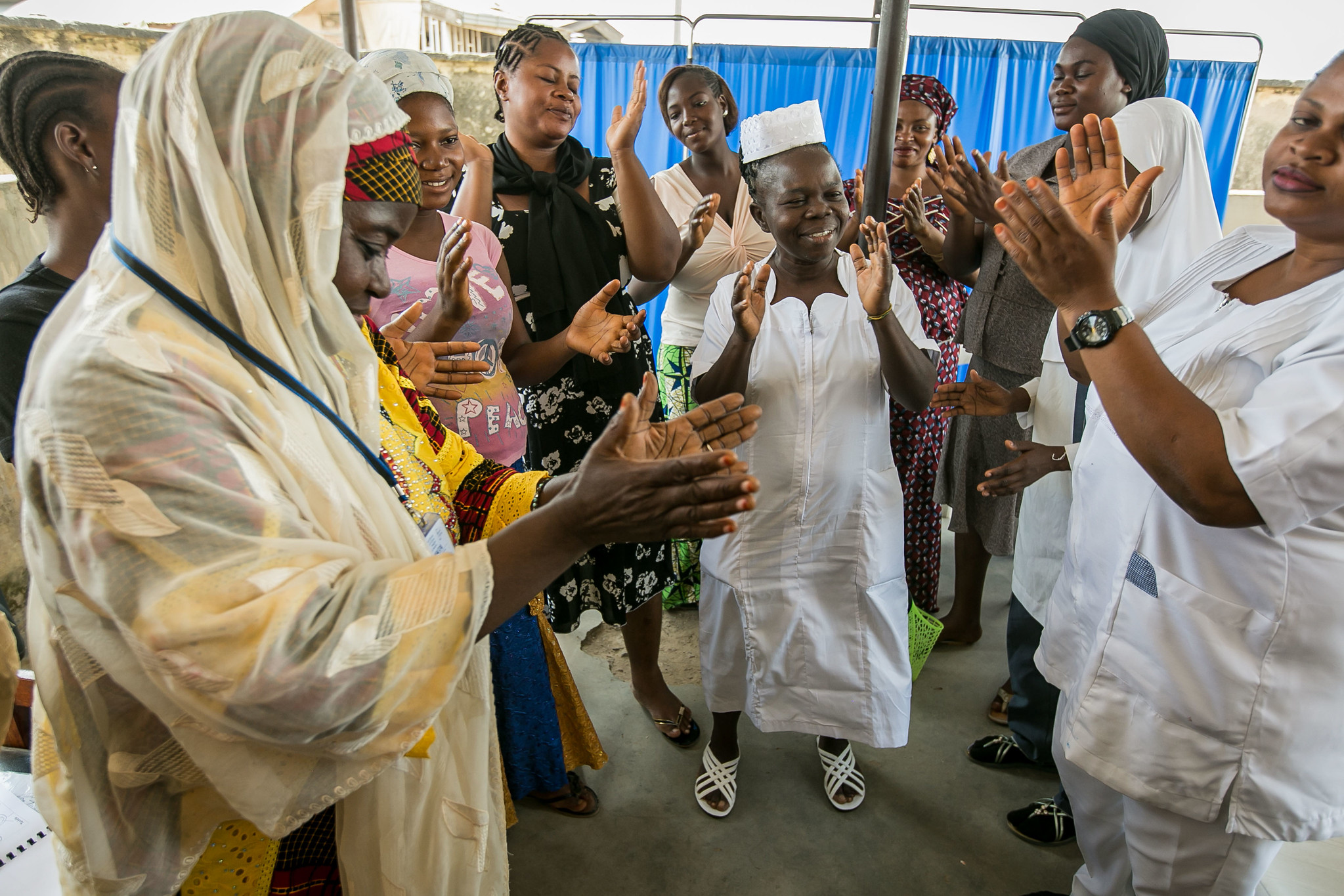
Let’s ensure every mother has access to the care during pregnancy that she wants and deserves, through Group ANC.
There are 100 million births a year in low- and middle-income countries. That means that every day, there are millions of pregnant women who need care to have a healthy pregnancy. When asked about what kind of care they want during pregnancy, women are clear. They want to survive childbirth and have a healthy baby who also survives. For women in many of the places we work, survival is not a guarantee. They also want personalized, supportive and respectful care from kind and caring health care providers, and opportunities to bond with other pregnant women for support.
One of the simplest but most remarkable ways we’ve found to fulfill pregnant women’s needs is providing care in groups—we call it Group Antenatal Care (G-ANC). It’s women-centered care, provided in a group with pregnant women at the same stage of pregnancy. What’s even more remarkable is that many women and providers, from conflict-affected Afghanistan to populous villages across Nigeria and the highlands of Guatemala, all love G-ANC. They love learning together, forming friendships, taking better care of themselves, and helping each other have a healthy pregnancy. The results are women come back for more care, they learn more, and have a positive pregnancy experience. Providers also enjoy G-ANC. They get to know their patients and have the time to discuss important topics and answer questions.
Since 2021, we have been working with local governments in Nigeria and Kenya to expand G-ANC into hundreds of health facilities. But the pace is not fast enough. We need exponential expansion. So we started asking, “If G-ANC is better care, why isn’t it available to all pregnant women? How can we accelerate scale-up?
In February 2024, we were thrilled to organize the first-ever Global Group ANC “Catalyzer” event in Nairobi, Kenya to try and answer these questions. We gathered with 125 researchers, government officials, public health professionals, and women’s health champions from 24 countries and spent three days together to prioritize ways to collaborate and accelerate change.
There was ample evidence and great enthusiasm for G-ANC, but it was surprising how many countries have not been able to make G-ANC widely available. Expansion has been limited by the lack of national policies, political commitment, and funding. At the Catalyzer, small groups worked to plan how best to accelerate scale-up, based on their experiences. Here are the priority actions that are needed:
- Updating global policy so the World Health Organization includes G-ANC as a recommendation and governments adopt it into national policies;
- Prioritizing research to fill evidence gaps to learn more about how G-ANC meets adolescents’ needs or works in the private sector;
- Increasing awareness and generating interest in G-ANC by disseminating the evidence and implementation resources on G-ANC in all low- and middle-income countries at the national and sub-national levels;
- Advocating for governments and donors to secure the political commitment and resources for G-ANC implementation at scale;
- Strengthening coordination and collaboration at the global and national levels to jointly plan for scale-up and share learning;
- Extending group care beyond birth for mothers and babies, which holds great potential to improve maternal, newborn and child health in the first two years of life, but requires more research and learning in low- and middle-income countries.
This month as the United States celebrates Mother’s Day, we continue to work with global partners, local champions and stakeholders to make G-ANC available to all pregnant women. Let’s work together so every mother can have the pregnancy experience she wants and deserves, through G-ANC.



